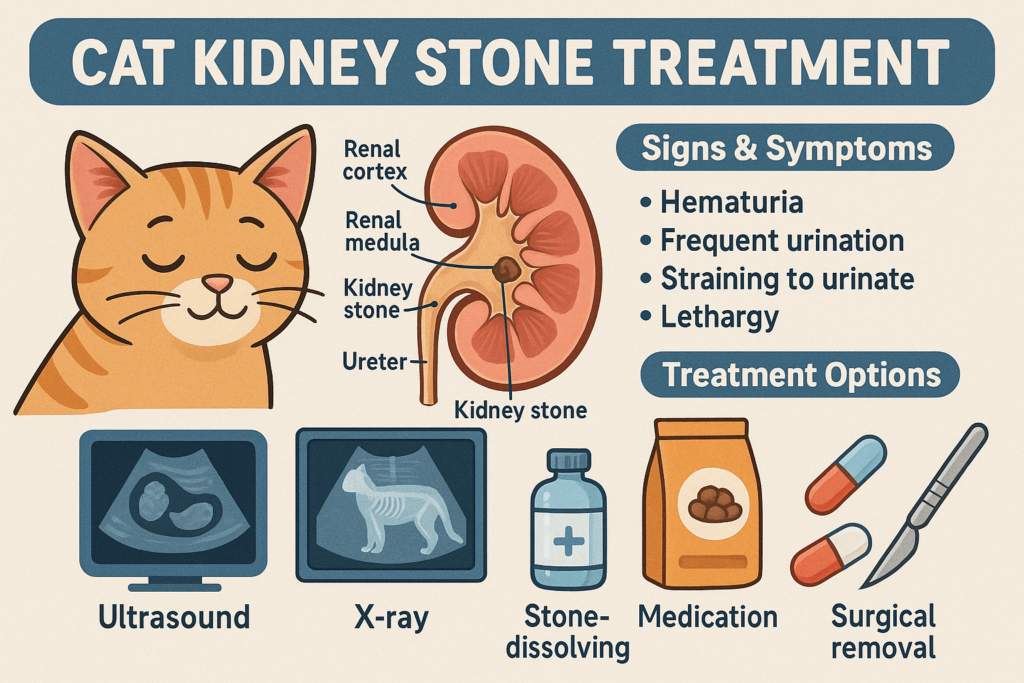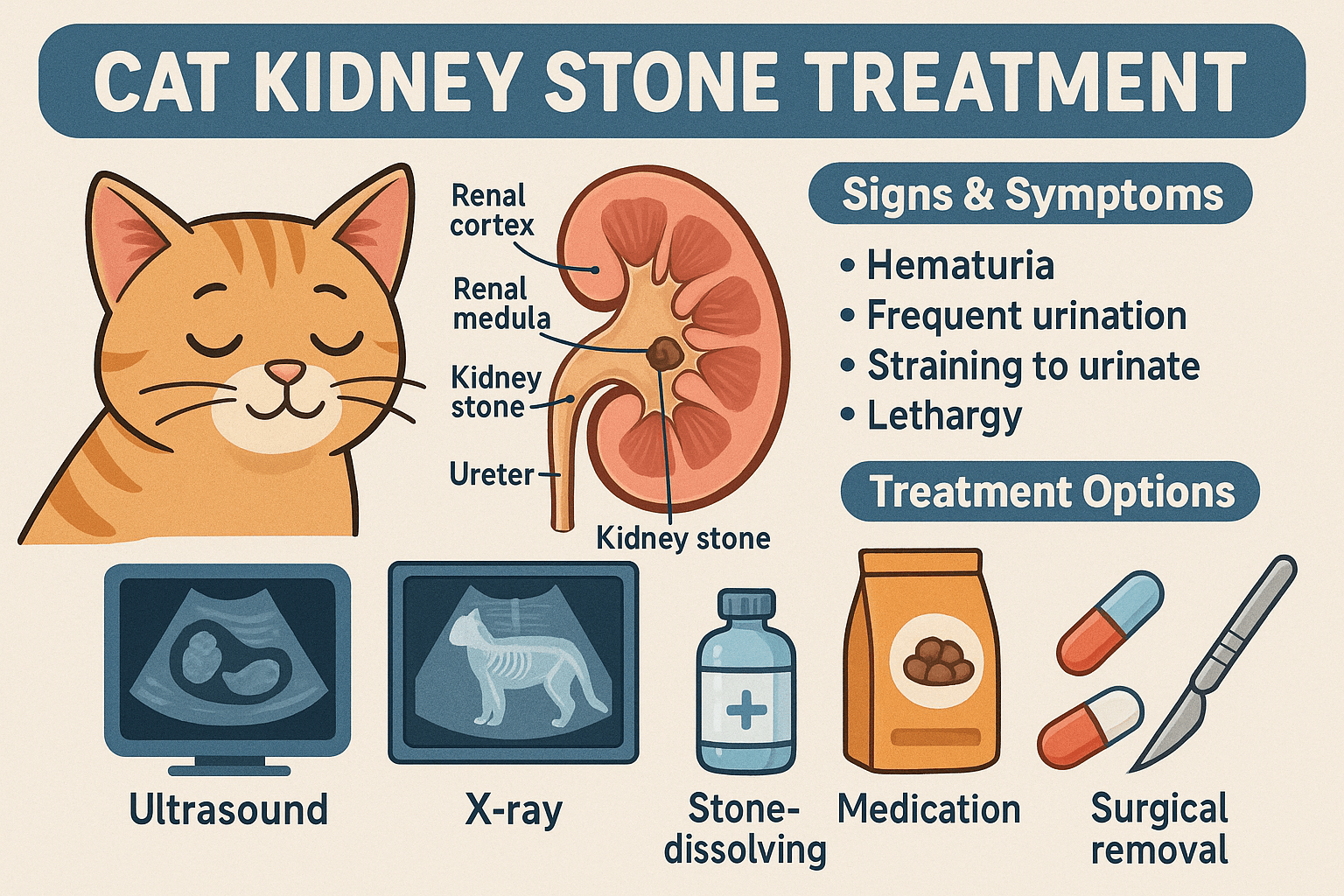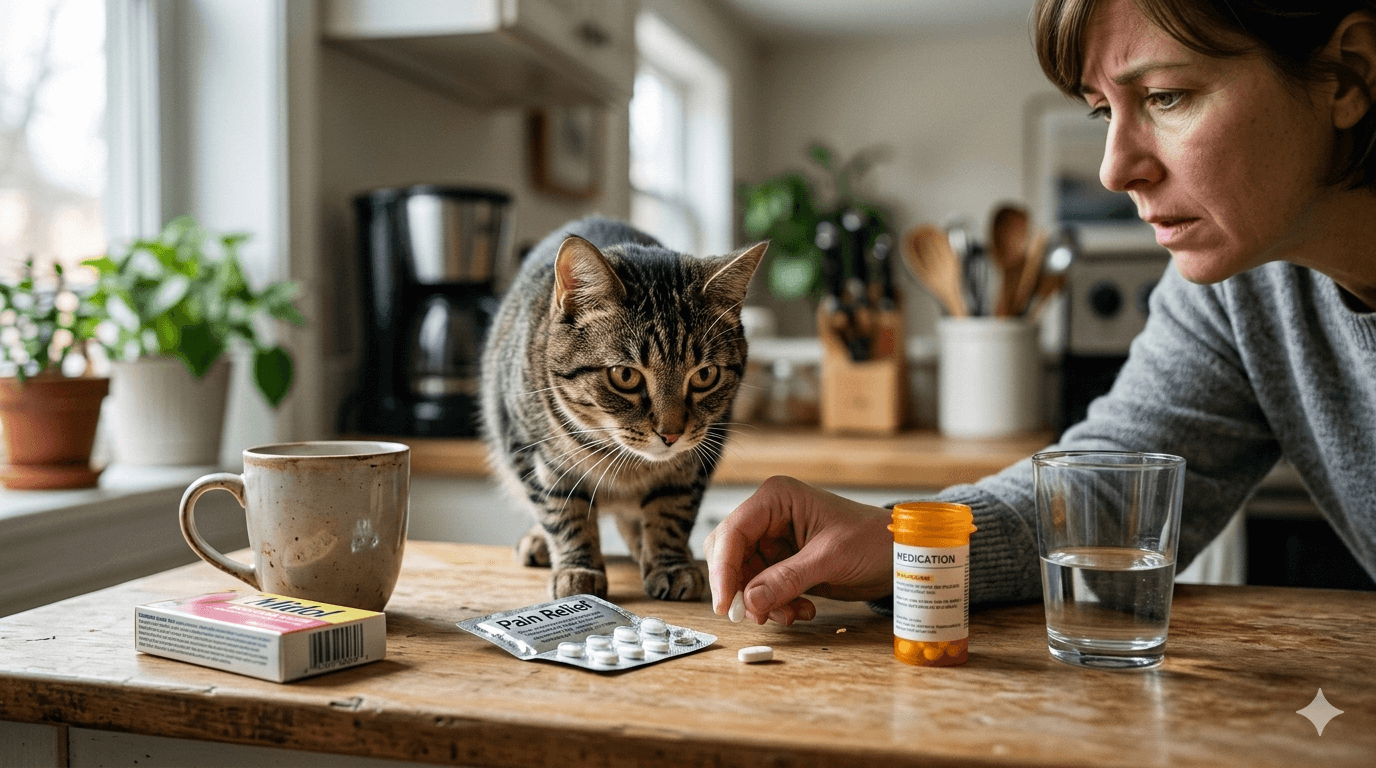Cat Kidney Stone Treatment: Understanding and Managing This Condition
Kidney stones, also known as nephrolithiasis, can be a concerning health issue for cats. While not as common as other feline ailments, kidney stones can cause discomfort, pain, and even serious complications if left untreated. As a responsible cat owner, it’s essential to recognize the signs of this condition and understand the available treatment options. From dietary adjustments to medical interventions, managing kidney stones requires a tailored approach that prioritizes your cat’s well-being. In this blog post, we’ll explore everything you need to know about cat kidney stone treatment, empowering you to provide the best care for your furry companion.
Expert Opinion on Cat Kidney Stone Treatment
“Many cats diagnosed with inactive kidney stones can be treated at home with proper medication administered in order to dissolve the stones. An adjustment to the cat’s diet is also necessary.”
Common Symptoms of Kidney Stones in Cats
Early detection of kidney stones is crucial for effective treatment. By recognizing these common symptoms, you can seek veterinary care promptly and prevent further complications.
Frequent Urination:
Cats with kidney stones may urinate more often than usual, even if only small amounts are passed.Straining to Urinate:
Difficulty or pain while urinating is a red flag that your cat may have a urinary blockage or kidney stones.Blood in Urine:
Hematuria, or blood in the urine, is a clear sign of irritation or damage caused by kidney stones.Lethargy and Loss of Appetite:
Cats experiencing discomfort from kidney stones may become less active and refuse to eat.Vomiting or Nausea:
These symptoms can indicate that toxins are building up due to impaired kidney function.
If you notice any of these signs, consult your veterinarian immediately to determine the underlying cause and begin appropriate treatment.

Treatment Options for Cat Kidney Stones
Treating kidney stones in cats depends on the severity of the condition and the type of stones present. Here are some common approaches veterinarians may recommend.
Hydration Therapy:
Increasing fluid intake through subcutaneous fluids or encouraging water consumption helps flush out the kidneys and reduce stone formation.Prescription Diets:
Specialized diets low in minerals like calcium and magnesium can prevent stone recurrence and support kidney health.Medications:
Drugs such as diuretics or muscle relaxants may be prescribed to alleviate symptoms and aid in stone passage.Surgical Intervention:
In severe cases, surgery may be necessary to remove large or obstructive stones that cannot pass naturally.Shock Wave Lithotripsy:
This non-invasive procedure uses sound waves to break down stones into smaller pieces that can be excreted more easily.
Each treatment option has its benefits and risks, so work closely with your vet to determine the best course of action for your cat.
Check this guide 👉Liver Failure in Cats: Best 7 Expert Tips!
Check this guide 👉Liver Disease in Cats: Best 7 Expert Tips!
Preventive Measures for Kidney Stones | Signs Your Cat Needs Immediate Care |
|---|---|
Provide fresh water at all times | Straining to urinate without producing urine |
Feed a balanced, vet-approved diet | Visible blood in urine |
Encourage exercise and play | Excessive vomiting or lethargy |
Schedule regular vet check-ups | Sudden loss of appetite |
Avoid high-mineral foods | Vocalizing in pain or distress |
Dietary Adjustments for Managing Kidney Stones
A proper diet plays a vital role in preventing and managing kidney stones in cats. Making thoughtful nutritional choices can significantly improve your cat’s quality of life.
Increase Moisture Content:
Wet food or adding water to dry kibble ensures adequate hydration, reducing the risk of stone formation.Limit Calcium and Magnesium:
These minerals contribute to certain types of stones. Choose foods specifically formulated to minimize their levels.Avoid High-Sodium Foods:
Excessive sodium can strain the kidneys, worsening existing conditions or increasing the likelihood of stone development.Incorporate Phosphorus Control:
For cats with chronic kidney issues, limiting phosphorus intake can slow disease progression and reduce stone recurrence.Consult Your Veterinarian:
Always discuss dietary changes with your vet to ensure they align with your cat’s unique health needs.
By focusing on nutrition, you can help manage kidney stones effectively and promote long-term kidney health.
Home Care Tips for Cats with Kidney Stones
Caring for a cat with kidney stones involves ongoing attention and adjustments to their daily routine. These tips can make home care easier and more effective.
Monitor Water Intake:
Keep track of how much water your cat drinks daily, ensuring they stay hydrated.Create a Stress-Free Environment:
Minimize stressors in your cat’s environment, as anxiety can exacerbate urinary issues.Provide Multiple Litter Boxes:
Place clean litter boxes in accessible areas to encourage regular urination and reduce straining.Observe Changes in Behavior:
Pay close attention to any shifts in eating habits, activity levels, or bathroom routines.Administer Medications as Directed:
Follow your veterinarian’s instructions carefully when giving medications to avoid complications.
With consistent care and observation, you can help your cat live comfortably despite their condition.
Preventing Recurrence of Kidney Stones
Preventing kidney stones from recurring is just as important as treating them initially. Taking proactive steps can safeguard your cat’s long-term health.
Regular Veterinary Check-Ups:
Routine exams allow your vet to monitor kidney function and detect potential issues early.Maintain Optimal Hydration:
Encourage water consumption through interactive fountains or flavored broths to keep your cat well-hydrated.Stick to Vet-Recommended Diets:
Consistently feeding a specialized diet reduces the risk of mineral imbalances that lead to stone formation.Minimize Environmental Stress:
A calm and stable home environment supports overall urinary health and reduces flare-ups.Track Progress Over Time:
Keep a journal of your cat’s behavior, diet, and hydration levels to identify patterns and report changes to your vet.
Proactive prevention ensures your cat remains comfortable and minimizes the chances of future kidney stone episodes.
Signs That Your Cat Is Improving
Recognizing positive changes in your cat’s condition provides reassurance that treatment is working. Look for these encouraging signs during recovery.
Increased Energy Levels:
A noticeable boost in activity indicates your cat is feeling better and regaining strength.Improved Appetite:
Returning to normal eating habits shows that discomfort or nausea has subsided.Clearer Urine Output:
The absence of blood or sediment in urine suggests healing and reduced irritation.Reduced Straining During Urination:
Easier and more frequent urination reflects improved kidney function and fewer obstructions.Happier Demeanor:
A relaxed and content demeanor signals that your cat is recovering well emotionally and physically.
These improvements highlight the effectiveness of your efforts and motivate continued care.
Emotional Support for Your Cat
Caring for a cat with kidney stones isn’t just about physical treatment—it’s also about providing emotional support during their recovery journey.
Spend Quality Time Together:
Gentle play or cuddling strengthens your bond and reassures your cat during stressful times.Offer Comfort Items:
Familiar blankets or toys create a sense of security and calmness.Use Positive Reinforcement:
Rewarding good behavior with treats or praise fosters trust and cooperation during treatments.Be Patient and Understanding:
Recovery takes time, and setbacks may occur. Staying patient helps both you and your cat stay resilient.Seek Support for Yourself:
Join online communities or talk to fellow cat owners to share experiences and gain advice.
Emotional care complements medical treatment, ensuring your cat feels loved and supported throughout their healing process.
Frequently Asked Questions About Cat Kidney Stone Treatment
What causes kidney stones in cats?
Kidney stones form due to mineral imbalances, dehydration, or underlying urinary tract issues.
Can kidney stones be fatal?
If left untreated, kidney stones can lead to severe complications like kidney failure or urinary blockages, which can be life-threatening.
How are kidney stones diagnosed?
Veterinarians use imaging techniques like X-rays or ultrasounds, along with urine analysis, to confirm the presence of stones.
Are certain breeds more prone to kidney stones?
Yes, some breeds, such as Persians and Himalayans, are genetically predisposed to urinary tract issues.
Can kidney stones recur after treatment?
Without proper management, including dietary changes and hydration, kidney stones can return. Regular monitoring is key to prevention.
Empowering Your Cat’s Recovery Journey
Managing kidney stones in cats requires patience, vigilance, and collaboration with your veterinarian. By understanding the symptoms, exploring treatment options, and implementing preventive measures, you can give your feline friend the best chance at a healthy, happy life. Remember, early intervention and consistent care are critical to overcoming this challenging condition. With love and dedication, you can navigate the complexities of cat kidney stone treatment and ensure your beloved pet thrives for years to come.
Can I Give My Cat Midol? Best 7 Expert Tips! – Learn the risks, symptoms, and safe alternatives to keep your cat healthy and avoid toxic reactions.
Can I Give My Dog Midol? Best 7 Expert Tips! – Discover the risks, safe alternatives, and expert advice to keep your dog safe from accidental poisoning.
Maximum Weight for Cats on Planes: Best 7 Expert Tips! – Learn airline policies, tips to stay compliant, and ensure safe travels for your feline friend.
Max Weight for Dogs on Planes: Best 7 Expert Tips! – Discover airline weight limits, safe travel tips, and solutions for flying with your dog stress-free.





